
PSYCHOANALYTIC QUARTERLY
Scope & Guideline
Unveiling Insights from a Legacy of Psychoanalytic Research
Introduction
Aims and Scopes
- Psychoanalytic Theory and Practice:
The journal focuses on the development and application of psychoanalytic theories, including traditional Freudian concepts, contemporary adaptations, and innovations in psychoanalytic practice. - Clinical Insights and Case Studies:
It publishes detailed case studies and clinical insights that exemplify psychoanalytic techniques and their effectiveness in therapy, contributing to the understanding of complex psychological phenomena. - Interdisciplinary Approaches:
The journal encourages interdisciplinary exploration, integrating psychoanalysis with literature, culture, politics, and other fields to enrich psychoanalytic discourse. - Cultural and Historical Contexts:
Papers often examine the cultural and historical contexts of psychoanalysis, reflecting on how societal changes influence psychoanalytic thought and practice. - Gender and Identity Studies:
An emphasis on gender, identity, and sexuality is prevalent, with discussions on how these aspects intersect with psychoanalytic theory and therapeutic practices. - Trauma and Resilience:
The journal addresses themes of trauma, resilience, and the psychoanalytic understanding of human suffering and recovery, particularly in contemporary contexts.
Trending and Emerging
- Relational Psychoanalysis:
There is a growing interest in relational psychoanalysis, emphasizing the dynamics of the therapeutic relationship and how these influence patient outcomes. - Psychoanalysis in the Digital Age:
Emerging discussions focus on the implications of virtual therapy and digital communication, particularly in the wake of the COVID-19 pandemic, exploring how these mediums affect psychoanalytic practice. - Cultural Trauma and Collective Memory:
Recent publications are increasingly addressing themes of cultural trauma and collective memory, reflecting on how societal events shape individual psyches. - Intersectionality in Psychoanalysis:
There is an expanding focus on intersectionality, examining how various identities (race, gender, sexuality) intersect and influence psychoanalytic treatment and theory. - Psychoanalysis and Social Justice:
The journal is increasingly publishing works that explore the intersection of psychoanalysis and social justice issues, including race, identity, and systemic oppression. - Mind-Body Connection and Somatic Psychoanalysis:
Emerging themes include the exploration of somatic experiences in psychoanalysis, emphasizing the connection between physical sensations and psychological processes.
Declining or Waning
- Traditional Freudian Constructs:
There appears to be a waning emphasis on strictly traditional Freudian theories, as contemporary psychoanalysts increasingly seek to adapt and innovate beyond classical frameworks. - Exclusively Individualistic Perspectives:
Papers focusing solely on individualistic psychoanalytic perspectives are becoming less frequent, with a shift towards relational and systemic approaches that consider broader social contexts. - Static Views on Gender and Sexuality:
The discussion of gender and sexuality is evolving; older binaries and static views are being replaced by more nuanced and dynamic understandings, reflecting contemporary societal changes. - Historical Psychoanalysis without Contemporary Relevance:
Papers that explore historical figures or theories without connecting them to current psychoanalytic practices or societal issues are less prevalent, as the journal seeks relevance in today's context. - Reductionist Approaches to Psychoanalysis:
There is a noticeable decrease in reductionist approaches that simplify complex psychological phenomena, as the field moves towards a more integrative view.
Similar Journals
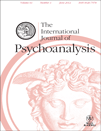
INTERNATIONAL JOURNAL OF PSYCHOANALYSIS
Unraveling the Complexities of the Human PsycheINTERNATIONAL JOURNAL OF PSYCHOANALYSIS is a distinguished academic journal published by Taylor & Francis Ltd, focusing on the evolving field of psychoanalysis and its intersections with clinical psychology, psychiatry, and mental health. Established in 1945, the journal has maintained a commitment to advancing theoretical and practical knowledge in psychoanalytic research and practice. With a commendable impact factor and categorized in the Q2 quartile for Clinical Psychology, Medicine, and Psychiatry and Mental Health, it positions itself among the forefront of scholarly contributions in these disciplines. Featuring a diverse array of studies and articles, the journal provides a vital platform for researchers, professionals, and students to engage with contemporary psychoanalytic discourse. Although it does not offer open access, the journal remains a crucial resource for those seeking to deepen their understanding of psychological theories and practices. Its well-curated content encourages rigorous examination and dialogue on the intricacies of human behavior, making it a significant reference point for anyone invested in the mental well-being of individuals.

Naslede
Advancing scholarly dialogue in the humanities.Naslede is a distinguished scholarly journal published by the University of Kragujevac, Faculty of Philology and Arts. With an ISSN and E-ISSN of 1820-1768, it serves as a vital platform for the dissemination of research in the fields of philology, arts, and cultural studies. The journal aspires to foster academic dialogue and scholarly exchange, providing researchers, professionals, and students with access to high-quality, peer-reviewed articles that explore the intersections of language, literature, and artistic expression. While it currently does not offer open access options, the significance of Naslede within its field cannot be overstated, as it contributes to the broader academic community by highlighting innovative research and emerging trends in the humanities. Located in Kragujevac, Serbia, the journal is positioned to bridge local and international scholarship, making it an essential resource for those dedicated to advancing knowledge in these disciplines.
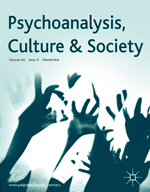
Psychoanalysis Culture & Society
Exploring the Depths of Psychoanalysis in Culture and SocietyPsychoanalysis Culture & Society, published by Palgrave Macmillan Ltd, serves as an essential interdisciplinary journal that explores the rich interconnections between psychoanalytic theory, culture, and societal dynamics. With an ISSN of 1088-0763 and an E-ISSN of 1543-3390, this UK-based journal not only provides a platform for scholarly discourse but also aims to enhance our understanding of how psychoanalysis influences and is influenced by cultural and social factors. As of 2023, it holds notable ranks across various categories in Scopus, including a Q2 status in Cultural Studies and Q4 ranking in Applied Psychology and Social Psychology, indicating its growing impact and relevance in these fields. Although it currently does not offer open access options, its rich content appeals to a broad audience of researchers, professionals, and students dedicated to exploring the complexities of human behavior within cultural contexts. By contributing to the dialogue around psychoanalysis and its applications, this journal continues to advance knowledge and facilitate innovative research in the applied and social sciences.
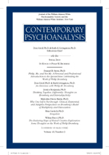
CONTEMPORARY PSYCHOANALYSIS
Unraveling Complexities of the Human Psyche.CONTEMPORARY PSYCHOANALYSIS is a prestigious peer-reviewed journal dedicated to advancing the fields of psychoanalysis, clinical psychology, and psychiatry. Published by Routledge Journals, Taylor & Francis Ltd, this journal has been a cornerstone of scholarship since its inception in 1964, facilitating a rich dialogue among researchers, practitioners, and academicians alike. With its current standing in the Q3 quartile for both Clinical Psychology and Psychiatry and Mental Health, it serves as a crucial platform for innovative research and theoretical exploration. Although it does not offer Open Access options, CONTEMPORARY PSYCHOANALYSIS remains essential for those seeking cutting-edge insights and rigorous analyses in psychoanalytic frameworks and their applications. The journal's commitment to high academic standards ensures that it continues to be relevant and impactful in the evolving landscape of mental health and psychoanalytic thought.

Psicoterapia e Scienze Umane
Advancing Knowledge in Clinical Psychology and Human BehaviorPsicoterapia e Scienze Umane is a significant academic journal published by FRANCO ANGELI, dedicated to the field of clinical psychology. With an ISSN of 0394-2864 and E-ISSN 1972-5043, the journal has established itself as an essential resource for researchers, professionals, and students interested in the interplay between psychotherapy and human sciences. Based in Milan, Italy, it encompasses a wide range of topics relevant to contemporary psychological practices and theories, aiming to bridge empirical research and psychotherapeutic application. Despite its Q4 ranking in the 2023 Clinical Psychology category, Psicoterapia e Scienze Umane provides a platform for innovative discussions and emerging trends in the field, welcoming contributions that can enhance the understanding of human behavior and mental health. While not categorized as an open-access journal, it offers valuable insights to its readers, contributing to the continual advancement of psychological science.
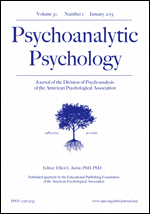
PSYCHOANALYTIC PSYCHOLOGY
Connecting Theory and Practice in Clinical PsychologyPSYCHOANALYTIC PSYCHOLOGY is a distinguished journal published by the Educational Publishing Foundation of the American Psychological Association, specifically tailored to the field of Clinical Psychology. With an ISSN of 0736-9735 and an E-ISSN of 1939-1331, this journal has been a pivotal platform for scholarly discourse since its inception in 1984 and will continue to serve the academic community through 2024. While the journal currently operates under traditional access options, it maintains a reputable presence in the field, reflected by its ranking in the Q3 category for Clinical Psychology as of 2023, and a Scopus percentile that places it in the 41st percentile among its peers. Aimed at researchers, professionals, and students alike, PSYCHOANALYTIC PSYCHOLOGY is committed to advancing psychoanalytic practice and education through the dissemination of rigorous research findings, theoretical discussions, and innovative clinical practices, solidifying its importance in the continuous evolution of psychological science.
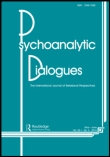
PSYCHOANALYTIC DIALOGUES
Advancing Conversations in Clinical PsychologyPSYCHOANALYTIC DIALOGUES is a distinguished academic journal published by Routledge Journals, Taylor & Francis Ltd, dedicated to the field of psychoanalysis and its intersection with clinical psychology. Since its inception in 1991, this journal has provided a platform for innovative research and discourse, significantly contributing to our understanding of the psychoanalytic tradition and its applications in contemporary therapy settings. With a growing impact factor and recognized as a Q2 journal in Clinical Psychology, it ranks in the 33rd percentile among its peers, highlighting its commitment to quality scholarship. While not an open access journal, it offers extensive access options for readers affiliated with institutions subscribed to Taylor & Francis. As a resource for researchers, professionals, and students alike, PSYCHOANALYTIC DIALOGUES engages with key topics and evolving theories within psychoanalysis, enriching the field with rigorous research and critical perspectives up to the year 2024.
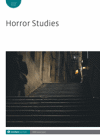
Horror Studies
Unveiling the Cultural Threads of HorrorHorror Studies, published by INTELLECT LTD, is a pivotal interdisciplinary journal dedicated to the exploration of the horror genre across various artistic mediums, including literature, music, visual arts, and performing arts. Since its inception in 2014, the journal has established itself as an essential resource for scholars and practitioners, facilitating critical discourse on the cultural, historical, and psychological aspects of horror. With an impressive Scopus ranking, placing it in the top quartile for literature and literary theory (Rank #188 out of 1106, 82nd percentile), and maintaining a Q3 category across all relevant areas, Horror Studies offers a platform for innovative research that engages with contemporary issues and the evolution of horror as a cultural phenomenon. Researchers and students alike will find value in its robust articles that analyze horror not just as a genre, but as a lens through which societal fears and anxieties are projected and examined. Although Horror Studies is not available as an open-access journal, its insights continue to make meaningful contributions to the scholarly landscape, promoting a deeper understanding and appreciation of horror's complex interplay with humanity.

AMERICAN IMAGO
Exploring the Intersection of Imagination and InsightAMERICAN IMAGO is a prestigious academic journal published by Johns Hopkins University Press, dedicated to the interdisciplinary exploration of literature, psychoanalysis, and cultural studies. Established in 1946, it has become a significant platform for scholars seeking to examine the interplay between imaginative literature and psychological theory. With an impressive ranking of Q1 in Literature and Literary Theory and solid placements in several other relevant categories, including Anthropology and Music, AMERICAN IMAGO demonstrates its commitment to fostering rigorous research and dialogue within the humanities and social sciences. The journal is not currently available as open access; however, it continues to attract a global readership eager to engage with innovative concepts and critical analyses. Scholars, professionals, and students alike will find value in the breadth of its scope, which spans from 1946 to 2024, presenting a rich archive of thought-provoking articles that enrich the study of literature and its psychological dimensions.
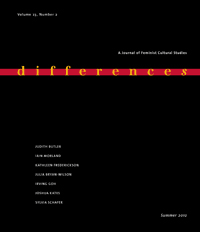
Differences-A Journal of Feminist Cultural Studies
Illuminating Diverse Voices in Cultural StudiesDifferences: A Journal of Feminist Cultural Studies is a distinguished academic journal published by DUKE UNIVERSITY PRESS, dedicated to exploring the intricate intersections of gender, culture, and society. With an ISSN of 1040-7391 and an E-ISSN of 1527-1986, this journal serves as a vital platform for feminist scholarship, contributing to critical discussions in both cultural studies and gender studies. The journal has achieved an impressive 2023 ranking in Q2 for Cultural Studies and Q3 for Gender Studies, underscoring its relevance and impact in these fields, as reflected in its Scopus rankings. Although not open access, the journal offers a range of insightful articles and research that span from its inception in 1994 to 2024, making it an essential resource for researchers, professionals, and students interested in feminist theories and cultural analysis. By publishing innovative and thought-provoking content, Differences continues to challenge dominant narratives and foster diverse voices within feminist discourse.